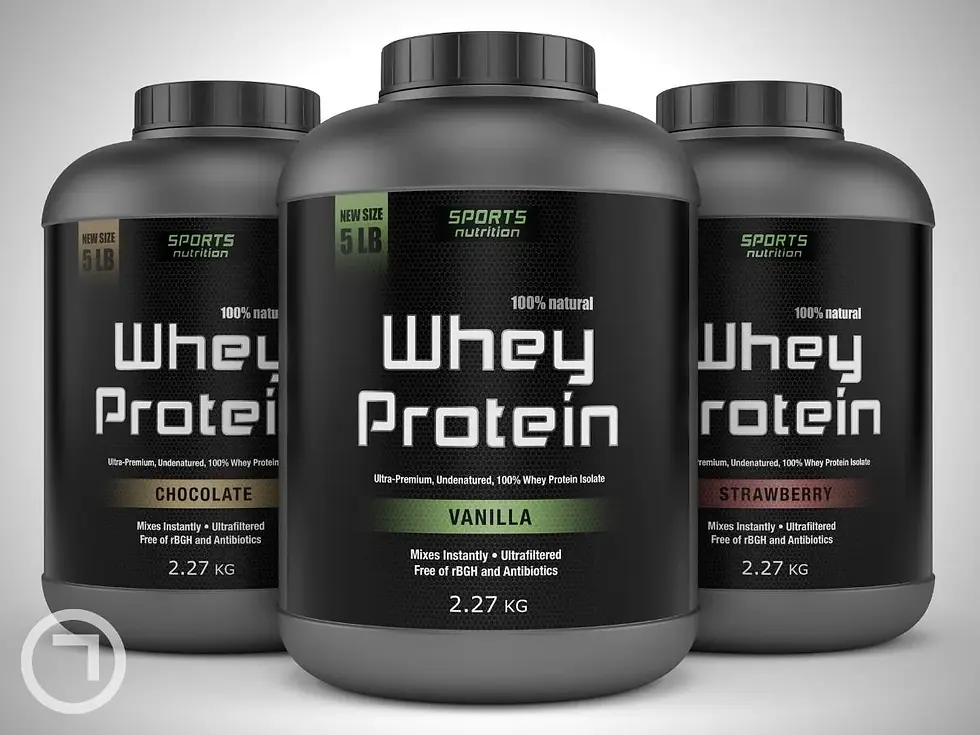
Protein has always been the highlight of maintaining good health with proper body shape, building muscles, and preparing the body for the following daily routine. Earlier recommended by medical experts and now promoted openly by celebrities in TV advertisements, protein is the most underrated nutrient that males’ bodies require to function on a day-to-day basis. Various fitness gurus have gone to the extent of saying that if a male follows any kind of workout regime, protein intake is quintessential for them; otherwise, a man indulged in day-to-day hectic personal and professional schedules does require a sufficient amount of protein.
Before we unravel protein’s significance to you, it is important to underline its effect on a male’s body. So let’s discuss the effect of protein on a male’s body.

Builds and repairs: Protein is made up of amino acids, commonly known as building blocks, as they are attached in long chains. Protein is also considered a "macronutrient," which requires relatively large amounts of it to stay healthy. Protein helps in building and repairing ruptured body blocks such as cartilage, skin, bones, muscles, etc. to function every day.
Oxygenate: Red blood cells in the body contain a protein compound that carries oxygen throughout the body. Protein helps supply your entire body with the nutrients it demands.
Digest: Almost half of the dietary protein consumed on a daily basis works towards making enzymes, which help in digesting food and developing new cells and body chemicals.
Regulate: Protein plays a vital role in regulating hormones, especially during puberty for the transformation and development of cells.
Sufficient Quantity

Certainly, with the various benefits listed above, one has realized the theory behind putting protein into an important section of males’ diets. But when it comes to diet, nutrient requirements, and health, it is highly personalized for everyone, as the requirements vary on account of body type, fitness goals, physical activities, and many more factors. Here is how you can measure your protein requirement as per your personal needs:
There have been various studies conducted on protein intake, wherein the Dietary Reference Intake report for macronutrients states that a sedentary adult must consume 0.8 grams of protein per kilogram of their body weight, or 0.36 grams per pound. It means that the average sedentary man should eat about 56 grams of protein per day.
But if you are wondering how much protein should be a part of your everyday calories, then at least 10%–35% of your calories should come from a source of protein. Hence, if your body demands 2,000 calories per day, 200–700 calories should come from protein.
To make it even simpler, every meal of the day should have a source of protein equal to the size of your fist to satisfy your protein requirement.
Protein food options

After understanding the importance and amount of protein in every meal, you must be confused about the good sources of protein that can be added to meals to fulfill the body's requirements and reach your fitness goal. While there are a few options that contain a higher amount of protein, before we list those, it is crucial to understand that each naturally and locally grown food that we have been consuming since our childhood compromises all kinds of nutrients, including protein. Hence, we should always consume wholesome food and meals that give us all vitamins, minerals, and different nutrients instead of categorizing food on the basis of carbs, fats, protein, etc.
A wholesome meal will always deliver the right amount of micronutrients and vitamins that a male's body requires to function, strengthen, build, and repair. However, there are a few options that can be added to wholesome meals to make them protein-rich, such as eggs, paneer, soy, lentils, seeds, nuts, pork, dairy, chicken, and whey protein.
If you add the above-given food item options of about 20–30 grams to every meal, it will nourish your body with its complete protein requirements.
Why Whey Protein?

Indeed, having any nutrient from its organic source in its natural form is always healthy and should be given the utmost importance. However, if you have witnessed any of your friends or colleagues boasting about powder protein supplements and are confused about them, then, again, the requirement for supplements is entirely a personalized choice that one must make based on their body requirements and fitness goals.
Milk comprises two main kinds of proteins, i.e., casein and whey. Whey is found in the watery portion of milk. Whey protein is a mixture of proteins isolated from whey, i.e., the liquid part of milk that separates during cheese production. After being separated during cheese production, whey passes through different processing procedures to become the supplement that people consider whey protein, which is mostly used in shakes, meal replacements, and protein bars that are becoming a new snack for health freaks these days.
Hence, whey protein can be considered vital for bodybuilders and gym enthusiasts, as well as people who need to lose weight or are simply lacking protein in their regular diets.
Conclusion
Now, to maintain a good, sustainable, healthy physique amidst hectic work schedules and demanding personal lives, make protein the highlight of your meal with the right choice and in an accurate amount.
Written by: Bhawana Anand
Edited by: Aniket Joshi
